
Care For Creation: A Conversation with Dr. Lisa Dahill
For three decades, Prairiewoods Franciscan Spirituality Center has embraced a deep commitment to caring for creation—integrating eco-spirituality into every aspect of our community and mission. A spirit of reverence for Earth infuses all we do—from sustainably designed facilities and organic...

Harvesting Sun and Soil: Agrivoltaics in Action at Prairiewoods
What do you get when you combine agriculture and solar farming? The answer is, Agri-voltaics! Agrivoltaics is a common worldwide practice and is a great way to utilize land under and around solar arrays by growing shade tolerant fruits and...
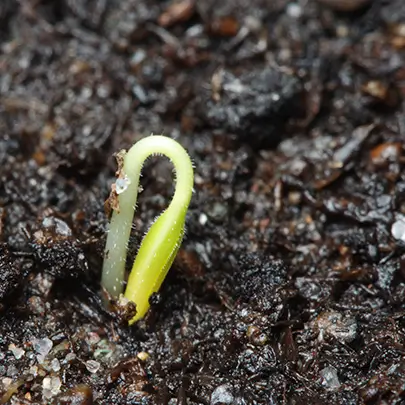
Write So Far: Giving Voice to Your Spiritual Journey
To paraphrase author and teacher Natalie Goldberg: In knowing who we are and writing from that knowledge, we have a chance to bring the reader deeper into our own heart. Even when that reader is our self. What’s more, she...
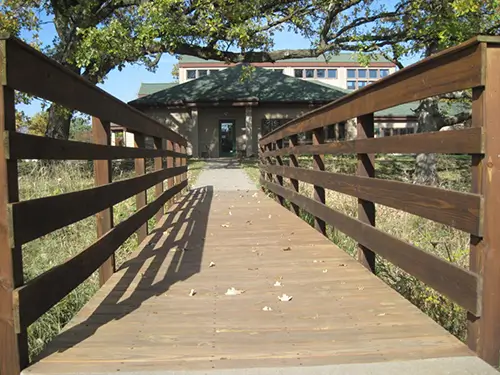
The Path of Transformation: A Weekend of Change and Renewal
As summer moves toward its close, the world shifts. The light begins to change, the gardens, once green and blooming, begin their surrender and offer their final fruits. The buzz of high summer gives way to a quieter, slower rhythm....
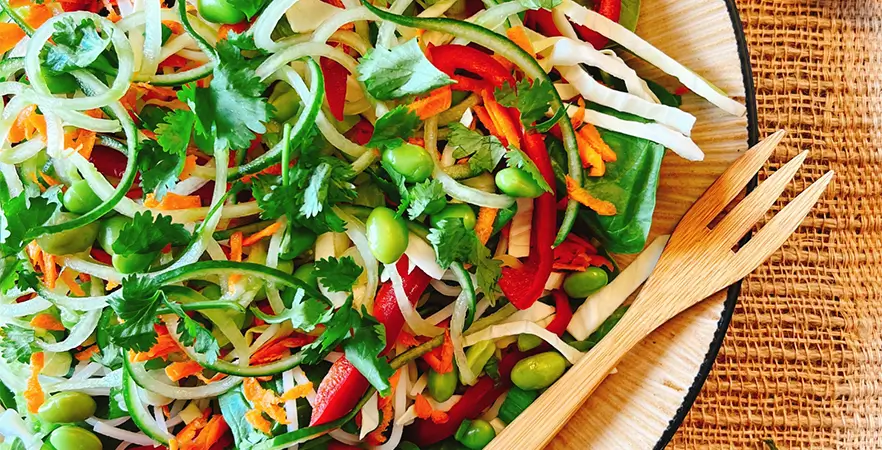
From Cafe to Cookbook: Where Plant-based Cooking Meets Community
Recently, I released something close to my heart: The Plantiful Family Favorites Cookbook. But before I tell you what’s in it, let me tell you why. Every time another diet trend comes along—low-fat, low-carb, high-protein—it’s easy to lose sight of...
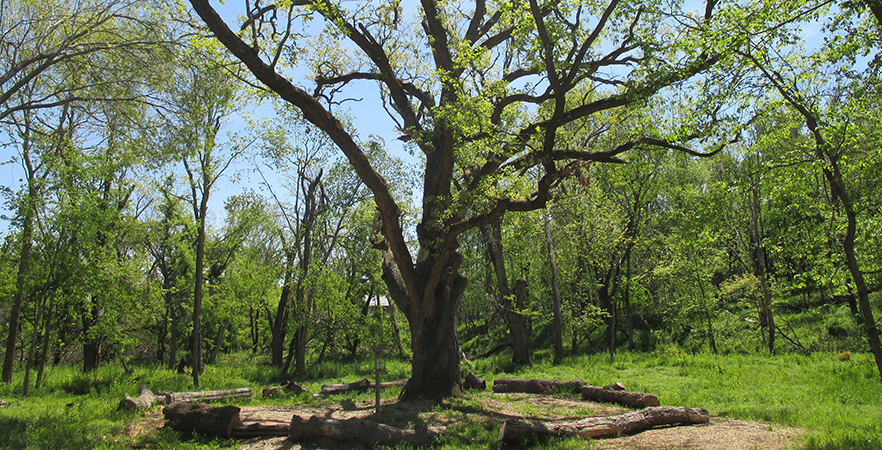
Becoming the Elder Tree: Lessons from Grandmother Oak
Perhaps Prairiewoods’ greatest teacher is the venerated Grandmother Oak. Thousands are drawn to her majestic presence every year, and most come away moved, even changed. As an arbor elder three centuries old, Grandmother Oak has much to teach us. All...

Dear Younger Me
Dear Younger Me by Mercy Me Dear younger me Where do I start If I could tell you everything that I have learned so far Then you could be One step ahead Of all the painful memories still running thru...
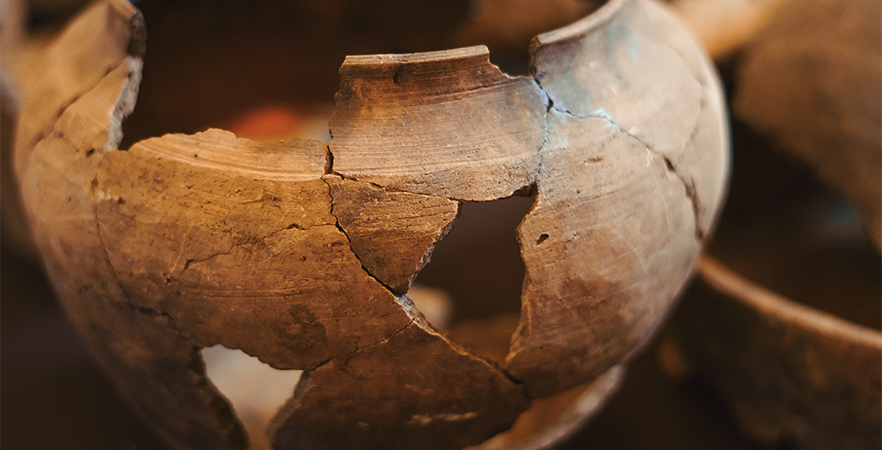
Healing. Restoring. Understanding.
In a world filled with hurt and pain, it can feel impossible to find a way to heal. But even in the chaos, it’s vital that we pause —to rest, to reflect, and to revive ourselves so we can become...
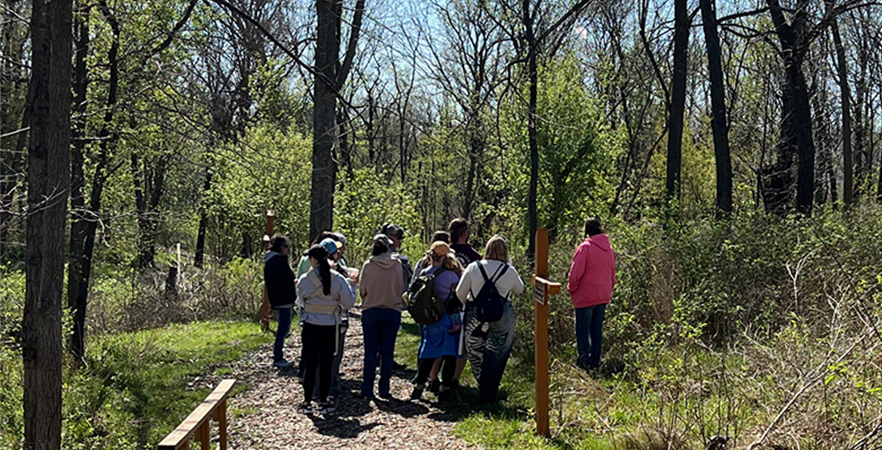
Prairiewoods: A Place of Healing
Here are just a few ways healing happens at Prairiewoods. On a recent Monday evening, a small group listened to a short reading about the practice of meditation and then sat in silence for 30 minutes. All of us in...
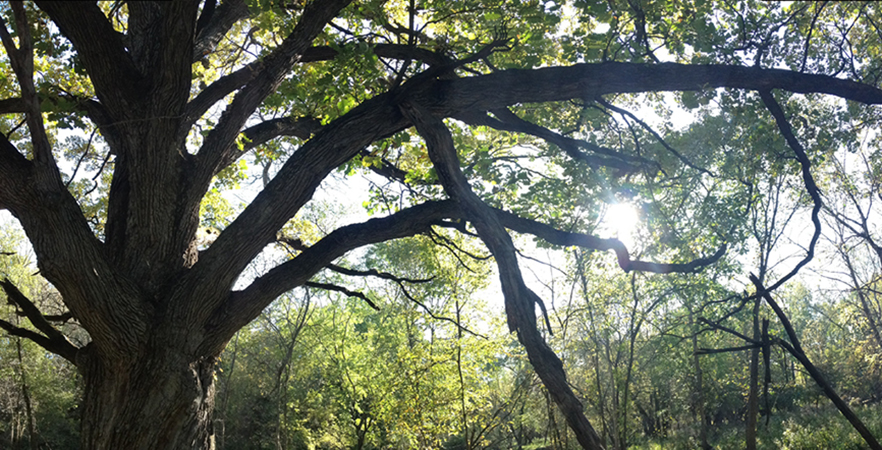
Grandmother Oak
they treasured grandmother oak stately tall and free they pray they don’t just say may she grow ever taller and hatred in this world grow smaller. —Mark Hanley
...
Pausing for Inner Peace
Mindfulness concepts and meditation practices have a rich and diverse 25-century history. I was recently challenged to distill some of them into a 30-minute presentation for Mercy Cedar Rapids Hospice staff. I recast meditation into pausing to make it more...
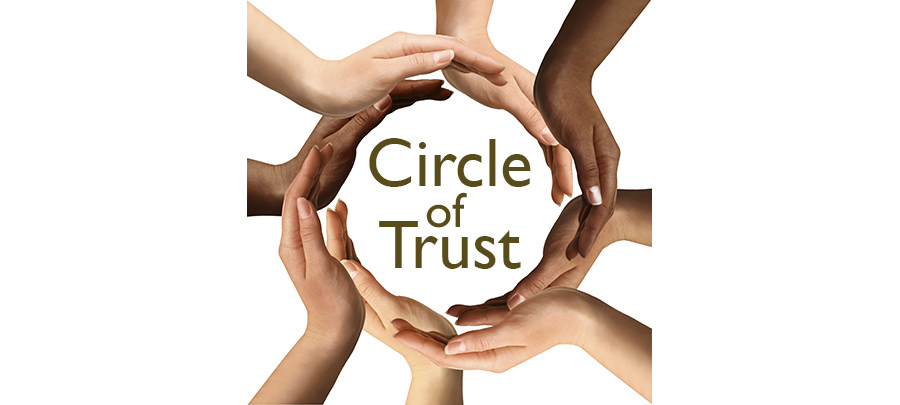
Circles of Trust: Nurturing the Authentic Self & Relational Trust
We are living in times made for Circles of Trust. And Circles of Trust are made for Prairiewoods, where we renew the spirit in beauty, quiet, and acceptance. In these days of cultural division and polarization, trust is in short...
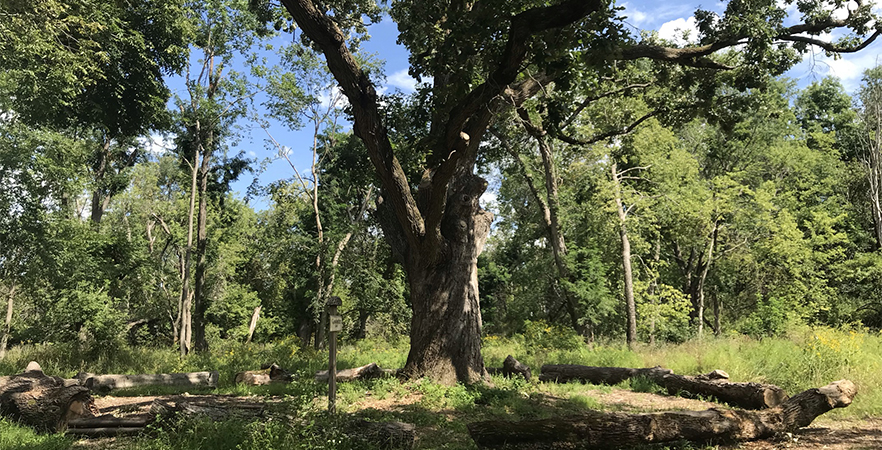
Grandmother Oak
Singer/songwriter Lea Morris was born in Washington, DC, and now lives in Germany, traveling the world to share her songs and experiences to lift hearts and connect communities. She visited Prairiewoods during her first trip to Iowa. During her stay,...
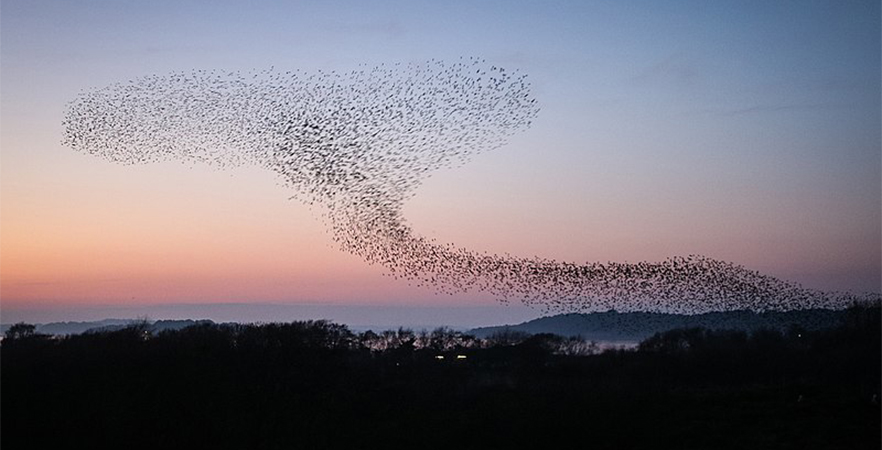
Swimming
The other day I was walking near the woods and the birds were so vocal, all together, that it reminded me of the holidays back home when I was growing up. And the poem Swimming appeared. I love this season...
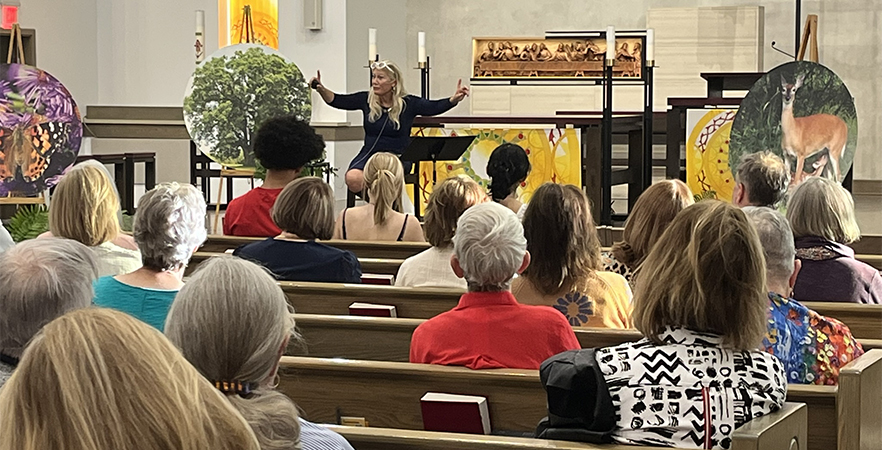
Carrying the Torch: Reflections on The Awakened Brain Event
In early May, we gathered in Cedar Rapids for Spirituality in the 21st Century: The Awakened Brain—a powerful event centered on the vital connection between spirituality and mental health. Together, we explored what it means to be torch bearers: those...